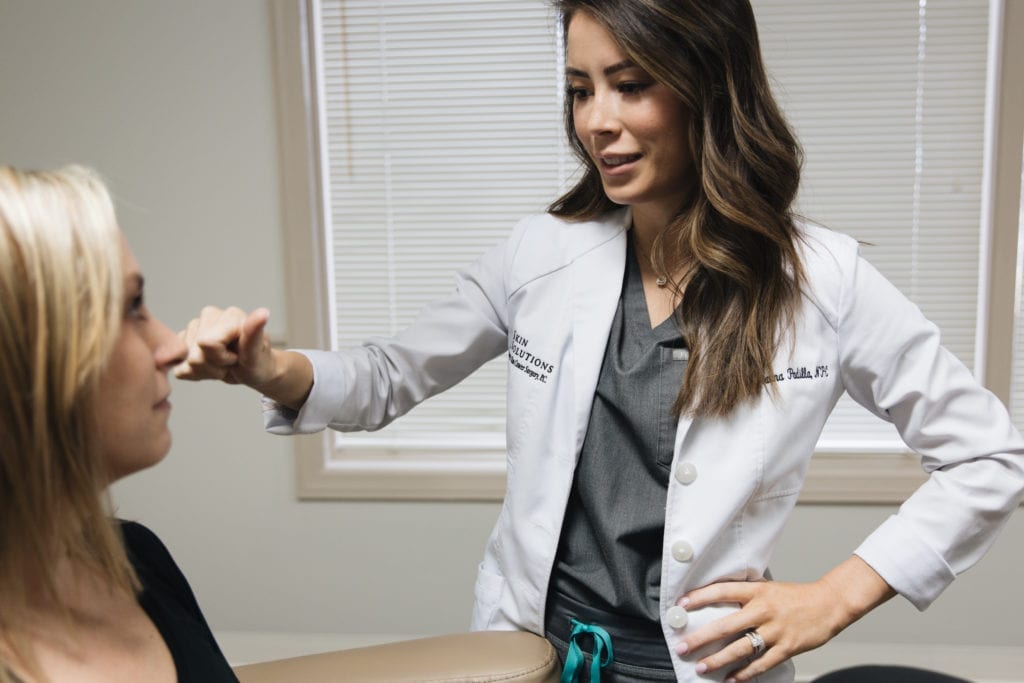
I am so glad you’re here! If you’re reading this I’m guessing you struggle with some form of acne and you’re looking for answers. Keep reading to see how to get rid of acne and the products I recommend.
I love my job (Dermatology Nurse Practitioner) and I love healing my patients, which is why I started this blog- to try and reach as many individuals as possible outside of my current practice.
It’s so frustrating a lot of insurances will deem acne as “cosmetic” and will not “cover” medications over the age of 21. I get it, we need to cut healthcare costs, but I also see the effects this disease has on the patients I treat.
Acne can be so debilitating– maybe not physically and, yes, there are so many illnesses out there that are physically debilitating and life terminating but emotionally and mentally, this disease can take a toll on you. I have seen the proper management of acne change so many patients lives that I feel the need to share my knowledge. If this blog post only helps ONE person to feel like their best self, mission accomplished.
I will go into a lot of detail within this post so if sections get a little too technical for you feel free to skip around! I’ll do my best to keep the nitty-gritty together so it is easily digested :).
Types of Acne
What a lot of people don’t know is there are a few different types or components of acne and it’s important to know what you’re dealing with because this will dictate how you treat it:
Inflammatory Papules/Nodules
These are the red, angry bumps (sometimes with little white pustules on top) or even super deep and painful along the jawline. Successful treatments with topical antibiotics and anti-inflammatory medications. Oral antibiotics can be prescribed for a short amount of time and should never be used long term.
Comedones
These are your black heads (commonly on the nose and chin) but also they can appear to be skin colored bumps that don’t really do anything unless you try to pop them THEN they will turn inflammatory (this is the hardest type to get rid of so make sure you stick with your regimen for at least 90 days!). Most commonly treated with topical Vitamin A.
Hormonal
Typically this is going to flare around menstrual cycles for females and have the distribution of the jawline. Diet can play a role in some individuals but most commonly can be controlled with oral anti-androgenics.
Trunkal
Acne located on the chest, shoulders, and/or back. This is hard to get rid of using only topicals but it can be done! If it seems to not clear within 90 days start to ask your provider about Isotretinoin (formerly branded as Accutane).
Scars– the majority of the time if you scar it is because you picked the bump! I know it’s so hard. I pick at my acne too because who wants a whopping volcano on their face staring at everyone they come into contact with during the day!? But the reality is, picking = scarring. Sun plays an important role too. Ensure you are wearing a moisturizer each and every day with at least 6% zinc as the active ingredient.
Skincare Routine
Over the counter (OTC) treatments for acne have always been more for inflammatory lesions and do not address the comedonal aspect (which of course is the most difficult to treat!).
However, in the past few years the most mild form of topical vitamin A has gone OTC. Hooray!!
Therefore, when patients come in and tell me they have been doing skincare line “xyz” and “it’s not working,” this is why! So don’t be discouraged! There are so many options although some may need a prescription!
Anytime you are treating acne with prescriptions or OTC topicals, you should also have a good skincare routine incorporated.
If you are just prescribed or recommended medications/topicals and nothing to balance your skin out from the active ingredients, you inevitably will become too dry and irritated.
An acne skincare routine needs to have at least 3 steps to cover the essentials. The reason I say at least 3 steps is because this is the bare minimum, although you are more than welcome to add any depending on your skin needs and preferences.
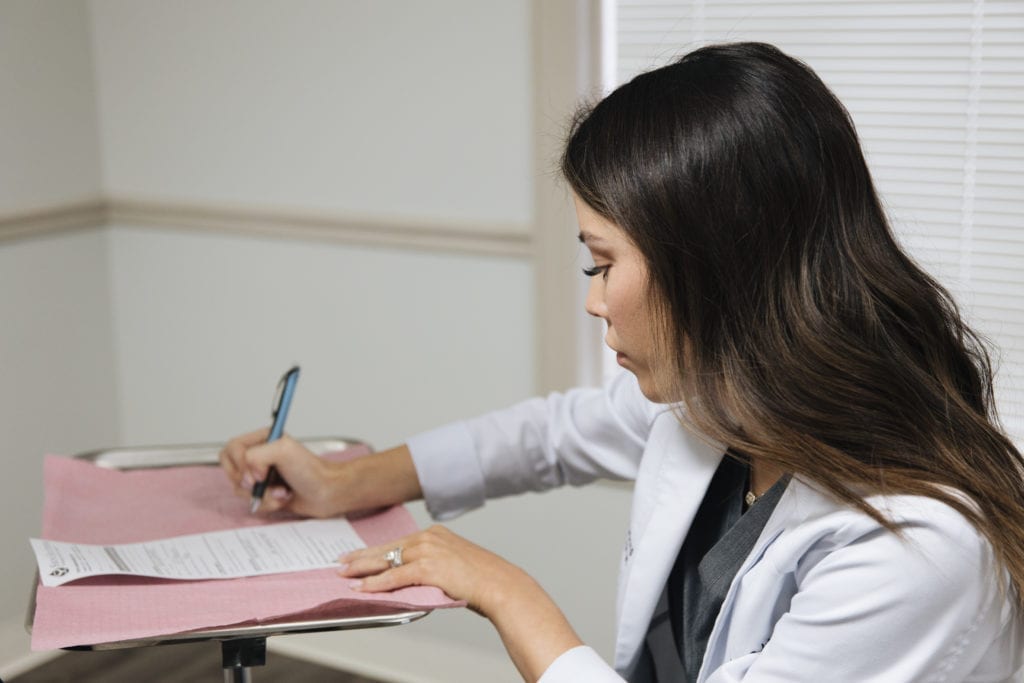
The basics are WASH, MEDICINE, and MOISTURIZE morning and night.
When prescribing a skincare regimen for patients I take many things into consideration. What is their skin type (oily vs. dry), what they are currently using on their skin, the type of acne I see on their face along with what the patient feels they have the majority of.
Patients I see in office do receive prescriptions to treat their acne. You may get the the point you need to see a dermatologist.
In the meantime, below are my favorite products for acne prone skin to get you started.
Wash (morning and night): SkinCeuticals LHA Cleanser for normal to oily skin. La Roche-Posay Toleriane Foaming Cleanser for normal to dry skin.
Salicylic Acid Pads (morning and night as tolerated)
SPF Moisturizer: Elta UV Clear for normal oily skin and Elta UV Replenish for normal to dry skin. Both of these have a tinted and non-tinted verson!
Retinoid (nightly as tolerated): Dr. Dennis Gross Alpha Beta Peel Pads or Differin Gel. If you have never used a retinoid or your skin is very sensitive, I would recommend the peel pads first. Once tolerated you can try Differin.
HINT: Use a retinoid every other night, or even 3rd night, working up to nightly. This will make you peel for the first 2-4 weeks you apply! It is okay as long as it does not burn. You can even apply your moisturizer under the rentoid to serve as a buffer if you have extra sensitive skin!
Once you have the basics down and are pretty consistent you can get a little more savvy and add in serums, eye creams, etc..
Click HERE to learn how to create the right skincare routine for you!
Could it be something other than acne…?
Have you seen a dermatologist and you don’t feel your acne is getting any better?
Let me ask you, is it just confined to around your mouth and nose?
There is a little pesky rash called perioral dermatitis– this mimics acne!
While the treatment is similar to acne, a topical vitamin A will actually worsen the bumps you see so you think it is making it worse (and it kind of is..). Also, if you put a topical steroid on this rash it will get better but as soon as you stop the steroid it will flare back up with a vengeance!
My point in all of this is to just make sure you are properly being diagnosed, treated, and rest assured you can get your face looking fabulous again!
Rome wasn’t built in a day…
A little dramatic heading, I know, but seriously… GIVE ALL OF THIS TIME! I can’t stress it enough!
You need to give it at least 90 days for any type of products or prescriptions to evaluate if it is effective or not. Of course your provider will be able to tell if you are making improvement, usually every 4 weeks, but to be completely clear or close to it rule of thumb is 90 days.
I know that time frame stinks but stick to it and you will reap the rewards!
Keep in mind, skincare is not a one size fits all. There are so many prescriptions and products on the market so you may have to switch up things several times before you find exactly what works for you.
Hopefully this was helpful to you- be patient and consistent but until then, hang in there, friend!
Comment below with not only any questions I can answer for you, but if you would be interested in recommendations of my favorite products in my upcoming posts!
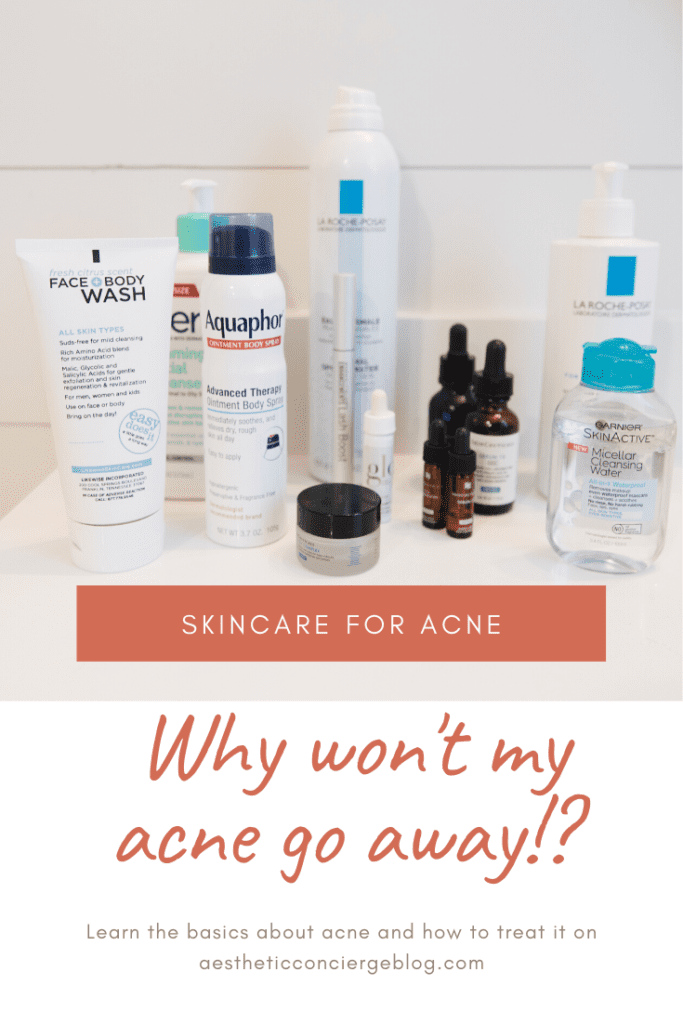
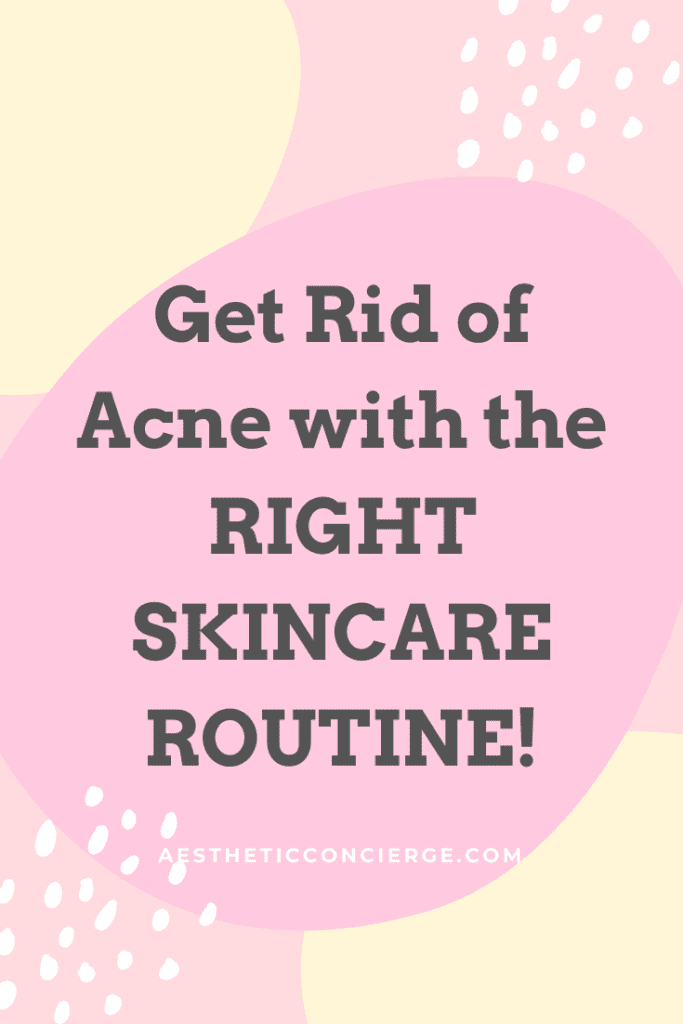
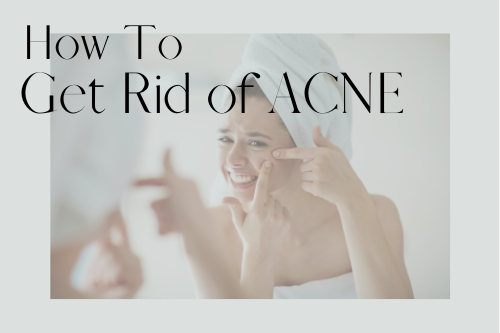
Vanna,
I absolutely LOVE this!!! Congrats on starting your blog. This was very informative and easy to understand. I look forward to next week’s blog!!
Thank you JaVida!! 🙂
Very informative! Can’t wait to continue to follow this!
Acne & How To Treat It article is very useful and well researched.
🙂 Be beautiful, you deserve!
Thank you for this. You actually care. I have had acne most of my life and feel completely left out. Thank you so much for this information!
Also, what do you recommend for blemishes?
Thank you Yari! What type of blemishes are you referring to? If they are the pigmentation or discoloration left after the acne spot, it will fade with time (3 months). The best thing you can do to prevent these is don’t pick (I know it’s hard!), wear a daily zinc based SPF moisturizer (the sun stains your skin when not protected from while you are breaking out), and exfolatives such as retinol and BHA/AHA (I have posts on these as well!).
Hope this helps,
Vanna